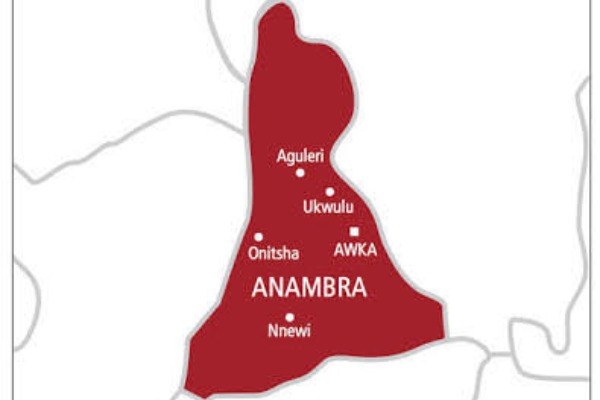Anambra among worst hit by climate change in Nigeria, Sub-Saharan Africa – CLEAP
Anambra State has been described as one of the worst places affected by the climate change in Nigeria and sub-Saharan Africa. The head of the Climate Change Education and Action Programme, (CLEAP), Mr. Elochukwu Ezenekwe, stated this in Awka, Anambra State during an interactive session with the state government officials at the Government House in […]

Anambra State Map
Anambra State has been described as one of the worst places affected by the climate change in Nigeria and sub-Saharan Africa.
The head of the Climate Change Education and Action Programme, (CLEAP), Mr. Elochukwu Ezenekwe, stated this in Awka, Anambra State during an interactive session with the state government officials at the Government House in Awka.
- ASUU: Kaduna Varsity Lecturers dare El-Rufai, refuse to supervise exams
- NIGERIA DAILY: 2023 Elections, The Deciding Factors For The Nigerian Youth
The programme was organised by Peace Advocacy and Sustainable Development Outreach (PASDO) as part of its CLEAP programme to galvanise climate action by educating stakeholders and actors at local, state, national and international levels.
The activity covered the impacts of climate change globally and in Anambra State, the concept of climate justice and international climate change adaptation fund opportunities, finance opportunities in climate change mitigation through international carbon market, emissions trading systems, among others.
Ezenekwe said Anambra State suffered the mos from flooding, describing the state as the headquarters of gully erosion in Nigeria and Africa.
According to him, classrooms, community health centres, houses, crops, farmlands, roads, electricity infrastructure and livelihoods collapse into deep gullies and nothing is recovered.
“Climate change hits us in Africa through various extreme weather and climate-related events that include drought, flooding and gully erosion.
“Drought and desertification are the least destructive and easiest to manage. Flooding is more destructive, but usually allows for recovery of houses and property when the waters recede,” he said.
According to him, to mitigate the menace, there is a need to prioritise or declare a climate change emergency in the state.
He advised the state government to take bold steps towards earning income from the carbon credit and emissions trading opportunities presented by the large scale tree planting programme as well as the massive evacuation and treatment of waste being undertaken by the Governor Chukwuma Soludo-led administration.
Speaking at the event, the Chief of Staff to the Governor, Mr. Ernest Ezeajughi, commended PASDO for embarking on the noble work of enlightening the government on the challenges and inherent opportunities that can be explored.
He disclosed that the governor had made plans to plant one million trees every year, targeting four million trees in the next four years.
Ezeajughi promised that the government would partner the heads of relevant ministries and agencies to design the best modality for implementing the recommendations made by PASDO.
